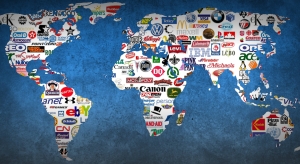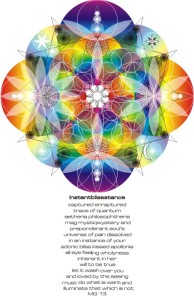
Gray Area
. . .
https://www.theguardian.com/books/2015/jul/17/postcapitalism-end-of-capitalism-begun
The 2008 crash wiped 13% off global production and 20% off global trade. Global growth became negative – on a scale where anything below +3% is counted as a recession. It produced, in the west, a depression phase longer than in 1929-33, and even now, amid a pallid recovery, has left mainstream economists terrified about the prospect of long-term stagnation. The aftershocks in Europe are tearing the continent apart.
The solutions have been austerity plus monetary excess. But they are not working. In the worst-hit countries, the pension system has been destroyed, the retirement age is being hiked to 70, and education is being privatised so that graduates now face a lifetime of high debt. Services are being dismantled and infrastructure projects put on hold.
Even now many people fail to grasp the true meaning of the word “austerity”. Austerity is not eight years of spending cuts, as in the UK, or even the social catastrophe inflicted on Greece. It means driving the wages, social wages and living standards in the west down for decades until they meet those of the middle class in China and India on the way up.
Meanwhile in the absence of any alternative model, the conditions for another crisis are being assembled. Real wages have fallen or remained stagnant in Japan, the southern Eurozone, the US and UK. The shadow banking system has been reassembled, and is now bigger than it was in 2008. New rules demanding banks hold more reserves have been watered down or delayed. Meanwhile, flushed with free money, the 1% has got richer.
Neoliberalism, then, has morphed into a system programmed to inflict recurrent catastrophic failures. Worse than that, it has broken the 200-year pattern of industrial capitalism wherein an economic crisis spurs new forms of technological innovation that benefit everybody.
That is because neoliberalism was the first economic model in 200 years the upswing of which was premised on the suppression of wages and smashing the social power and resilience of the working class. If we review the take-off periods studied by long-cycle theorists – the 1850s in Europe, the 1900s and 1950s across the globe – it was the strength of organised labour that forced entrepreneurs and corporations to stop trying to revive outdated business models through wage cuts, and to innovate their way to a new form of capitalism.
The result is that, in each upswing, we find a synthesis of automation, higher wages and higher-value consumption. Today there is no pressure from the workforce, and the technology at the centre of this innovation wave does not demand the creation of higher-consumer spending, or the re‑employment of the old workforce in new jobs. Information is a machine for grinding the price of things lower and slashing the work time needed to support life on the planet.
Occupy was right: capitalism has failed the world
Read more
As a result, large parts of the business class have become neo-luddites. Faced with the possibility of creating gene-sequencing labs, they instead start coffee shops, nail bars and contract cleaning firms: the banking system, the planning system and late neoliberal culture reward above all the creator of low-value, long-hours jobs.
Innovation is happening but it has not, so far, triggered the fifth long upswing for capitalism that long-cycle theory would expect. The reasons lie in the specific nature of information technology.
…
We’re surrounded not just by intelligent machines but by a new layer of reality centred on information. Consider an airliner: a computer flies it; it has been designed, stress-tested and “virtually manufactured” millions of times; it is firing back real-time information to its manufacturers. On board are people squinting at screens connected, in some lucky countries, to the internet.
Seen from the ground it is the same white metal bird as in the James Bond era. But it is now both an intelligent machine and a node on a network. It has an information content and is adding “information value” as well as physical value to the world. On a packed business flight, when everyone’s peering at Excel or Powerpoint, the passenger cabin is best understood as an information factory.
Postcapitalism evolution. Illustration by Joe Magee
Facebook Twitter Pinterest
Is it utopian to believe we’re on the verge of an evolution beyond capitalism? Illustration by Joe Magee
But what is all this information worth? You won’t find an answer in the accounts: intellectual property is valued in modern accounting standards by guesswork. A study for the SAS Institute in 2013 found that, in order to put a value on data, neither the cost of gathering it, nor the market value or the future income from it could be adequately calculated. Only through a form of accounting that included non-economic benefits, and risks, could companies actually explain to their shareholders what their data was really worth. Something is broken in the logic we use to value the most important thing in the modern world.
The great technological advance of the early 21st century consists not only of new objects and processes, but of old ones made intelligent. The knowledge content of products is becoming more valuable than the physical things that are used to produce them. But it is a value measured as usefulness, not exchange or asset value. In the 1990s economists and technologists began to have the same thought at once: that this new role for information was creating a new, “third” kind of capitalism – as different from industrial capitalism as industrial capitalism was to the merchant and slave capitalism of the 17th and 18th centuries. But they have struggled to describe the dynamics of the new “cognitive” capitalism. And for a reason. Its dynamics are profoundly non-capitalist.
During and right after the second world war, economists viewed information simply as a “public good”. The US government even decreed that no profit should be made out of patents, only from the production process itself. Then we began to understand intellectual property. In 1962, Kenneth Arrow, the guru of mainstream economics, said that in a free market economy the purpose of inventing things is to create intellectual property rights. He noted: “precisely to the extent that it is successful there is an underutilisation of information.”
You can observe the truth of this in every e-business model ever constructed: monopolise and protect data, capture the free social data generated by user interaction, push commercial forces into areas of data production that were non-commercial before, mine the existing data for predictive value – always and everywhere ensuring nobody but the corporation can utilise the results.
If we restate Arrow’s principle in reverse, its revolutionary implications are obvious: if a free market economy plus intellectual property leads to the “underutilisation of information”, then an economy based on the full utilisation of information cannot tolerate the free market or absolute intellectual property rights. The business models of all our modern digital giants are designed to prevent the abundance of information.
Yet information is abundant. Information goods are freely replicable. Once a thing is made, it can be copied/pasted infinitely. A music track or the giant database you use to build an airliner has a production cost; but its cost of reproduction falls towards zero. Therefore, if the normal price mechanism of capitalism prevails over time, its price will fall towards zero, too.
For the past 25 years economics has been wrestling with this problem: all mainstream economics proceeds from a condition of scarcity, yet the most dynamic force in our modern world is abundant and, as hippy genius Stewart Brand once put it, “wants to be free”.
There is, alongside the world of monopolised information and surveillance created by corporations and governments, a different dynamic growing up around information: information as a social good, free at the point of use, incapable of being owned or exploited or priced. I’ve surveyed the attempts by economists and business gurus to build a framework to understand the dynamics of an economy based on abundant, socially-held information. But it was actually imagined by one 19th-century economist in the era of the telegraph and the steam engine. His name? Karl Marx.
…
The scene is Kentish Town, London, February 1858, sometime around 4am. Marx is a wanted man in Germany and is hard at work scribbling thought-experiments and notes-to-self. When they finally get to see what Marx is writing on this night, the left intellectuals of the 1960s will admit that it “challenges every serious interpretation of Marx yet conceived”. It is called “The Fragment on Machines”.
In the “Fragment” Marx imagines an economy in which the main role of machines is to produce, and the main role of people is to supervise them. He was clear that, in such an economy, the main productive force would be information. The productive power of such machines as the automated cotton-spinning machine, the telegraph and the steam locomotive did not depend on the amount of labour it took to produce them but on the state of social knowledge. Organisation and knowledge, in other words, made a bigger contribution to productive power than the work of making and running the machines.
Given what Marxism was to become – a theory of exploitation based on the theft of labour time – this is a revolutionary statement. It suggests that, once knowledge becomes a productive force in its own right, outweighing the actual labour spent creating a machine, the big question becomes not one of “wages versus profits” but who controls what Marx called the “power of knowledge”.
In an economy where machines do most of the work, the nature of the knowledge locked inside the machines must, he writes, be “social”. In a final late-night thought experiment Marx imagined the end point of this trajectory: the creation of an “ideal machine”, which lasts forever and costs nothing. A machine that could be built for nothing would, he said, add no value at all to the production process and rapidly, over several accounting periods, reduce the price, profit and labour costs of everything else it touched.
Once you understand that information is physical, and that software is a machine, and that storage, bandwidth and processing power are collapsing in price at exponential rates, the value of Marx’s thinking becomes clear. We are surrounded by machines that cost nothing and could, if we wanted them to, last forever.
In these musings, not published until the mid-20th century, Marx imagined information coming to be stored and shared in something called a “general intellect” – which was the mind of everybody on Earth connected by social knowledge, in which every upgrade benefits everybody. In short, he had imagined something close to the information economy in which we live. And, he wrote, its existence would “blow capitalism sky high”.
Marx imagined something close to our information economy. He wrote its existence would blow capitalism sky high
…
With the terrain changed, the old path beyond capitalism imagined by the left of the 20th century is lost.
But a different path has opened up. Collaborative production, using network technology to produce goods and services that only work when they are free, or shared, defines the route beyond the market system. It will need the state to create the framework – just as it created the framework for factory labour, sound currencies and free trade in the early 19th century. The postcapitalist sector is likely to coexist with the market sector for decades, but major change is happening.
Networks restore “granularity” to the postcapitalist project. That is, they can be the basis of a non-market system that replicates itself, which does not need to be created afresh every morning on the computer screen of a commissar.
The transition will involve the state, the market and collaborative production beyond the market. But to make it happen, the entire project of the left, from protest groups to the mainstream social democratic and liberal parties, will have to be reconfigured. In fact, once people understand the logic of the postcapitalist transition, such ideas will no longer be the property of the left – but of a much wider movement, for which we will need new labels.
Who can make this happen? In the old left project it was the industrial working class. More than 200 years ago, the radical journalist John Thelwall warned the men who built the English factories that they had created a new and dangerous form of democracy: “Every large workshop and manufactory is a sort of political society, which no act of parliament can silence, and no magistrate disperse.”
Today the whole of society is a factory. We all participate in the creation and recreation of the brands, norms and institutions that surround us. At the same time the communication grids vital for everyday work and profit are buzzing with shared knowledge and discontent. Today it is the network – like the workshop 200 years ago – that they “cannot silence or disperse”.
Play VideoPlay
Current Time 0:00
/
Duration Time 4:19
Loaded: 0%
Progress: 0%
FullscreenMute
Facebook Twitter Pinterest
Manuel Castells: how modern political movements straddle urban space and cyberspace
True, states can shut down Facebook, Twitter, even the entire internet and mobile network in times of crisis, paralysing the economy in the process. And they can store and monitor every kilobyte of information we produce. But they cannot reimpose the hierarchical, propaganda-driven and ignorant society of 50 years ago, except – as in China, North Korea or Iran – by opting out of key parts of modern life. It would be, as sociologist Manuel Castells put it, like trying to de-electrify a country.
By creating millions of networked people, financially exploited but with the whole of human intelligence one thumb-swipe away, info-capitalism has created a new agent of change in history: the educated and connected human being.
…
This will be more than just an economic transition. There are, of course, the parallel and urgent tasks of decarbonising the world and dealing with demographic and fiscal timebombs. But I’m concentrating on the economic transition triggered by information because, up to now, it has been sidelined. Peer-to-peer has become pigeonholed as a niche obsession for visionaries, while the “big boys” of leftwing economics get on with critiquing austerity.
Illustration by Joe Magee
Facebook Twitter Pinterest
Information wants to be free. Illustration by Joe Magee
In fact, on the ground in places such as Greece, resistance to austerity and the creation of “networks you can’t default on” – as one activist put it to me – go hand in hand. Above all, postcapitalism as a concept is about new forms of human behaviour that conventional economics would hardly recognise as relevant.
So how do we visualise the transition ahead? The only coherent parallel we have is the replacement of feudalism by capitalism – and thanks to the work of epidemiologists, geneticists and data analysts, we know a lot more about that transition than we did 50 years ago when it was “owned” by social science. The first thing we have to recognise is: different modes of production are structured around different things. Feudalism was an economic system structured by customs and laws about “obligation”. Capitalism was structured by something purely economic: the market. We can predict, from this, that postcapitalism – whose precondition is abundance – will not simply be a modified form of a complex market society. But we can only begin to grasp at a positive vision of what it will be like.
I don’t mean this as a way to avoid the question: the general economic parameters of a postcapitalist society by, for example, the year 2075, can be outlined. But if such a society is structured around human liberation, not economics, unpredictable things will begin to shape it.
For example, the most obvious thing to Shakespeare, writing in 1600, was that the market had called forth new kinds of behaviour and morality. By analogy, the most obvious “economic” thing to the Shakespeare of 2075 will be the total upheaval in gender relationships, or sexuality, or health. Perhaps there will not even be any playwrights: perhaps the very nature of the media we use to tell stories will change – just as it changed in Elizabethan London when the first public theatres were built.
Think of the difference between, say, Horatio in Hamlet and a character such as Daniel Doyce in Dickens’s Little Dorrit. Both carry around with them a characteristic obsession of their age – Horatio is obsessed with humanist philosophy; Doyce is obsessed with patenting his invention. There can be no character like Doyce in Shakespeare; he would, at best, get a bit part as a working-class comic figure. Yet, by the time Dickens described Doyce, most of his readers knew somebody like him. Just as Shakespeare could not have imagined Doyce, so we too cannot imagine the kind of human beings society will produce once economics is no longer central to life. But we can see their prefigurative forms in the lives of young people all over the world breaking down 20th-century barriers around sexuality, work, creativity and the self.
The feudal model of agriculture collided, first, with environmental limits and then with a massive external shock – the Black Death. After that, there was a demographic shock: too few workers for the land, which raised their wages and made the old feudal obligation system impossible to enforce. The labour shortage also forced technological innovation. The new technologies that underpinned the rise of merchant capitalism were the ones that stimulated commerce (printing and accountancy), the creation of tradeable wealth (mining, the compass and fast ships) and productivity (mathematics and the scientific method).
Present throughout the whole process was something that looks incidental to the old system – money and credit – but which was actually destined to become the basis of the new system. In feudalism, many laws and customs were actually shaped around ignoring money; credit was, in high feudalism, seen as sinful. So when money and credit burst through the boundaries to create a market system, it felt like a revolution. Then, what gave the new system its energy was the discovery of a virtually unlimited source of free wealth in the Americas.
A combination of all these factors took a set of people who had been marginalised under feudalism – humanists, scientists, craftsmen, lawyers, radical preachers and bohemian playwrights such as Shakespeare – and put them at the head of a social transformation. At key moments, though tentatively at first, the state switched from hindering the change to promoting it.
Today, the thing that is corroding capitalism, barely rationalised by mainstream economics, is information. Most laws concerning information define the right of corporations to hoard it and the right of states to access it, irrespective of the human rights of citizens. The equivalent of the printing press and the scientific method is information technology and its spillover into all other technologies, from genetics to healthcare to agriculture to the movies, where it is quickly reducing costs.
David Graeber interview: ‘So many people spend their working lives doing jobs they think are unnecessary’
Read more
The modern equivalent of the long stagnation of late feudalism is the stalled take-off of the third industrial revolution, where instead of rapidly automating work out of existence, we are reduced to creating what David Graeber calls “bullshit jobs” on low pay. And many economies are stagnating.
finish reading:
https://www.theguardian.com/books/2015/jul/17/postcapitalism-end-of-capitalism-begun










